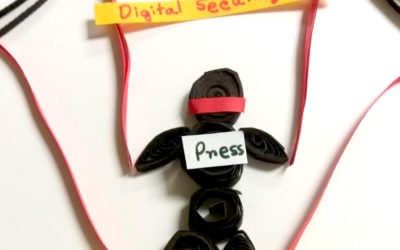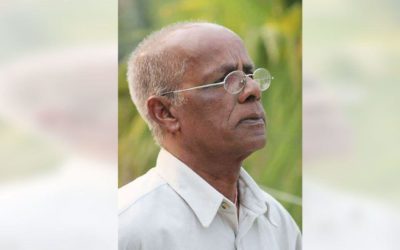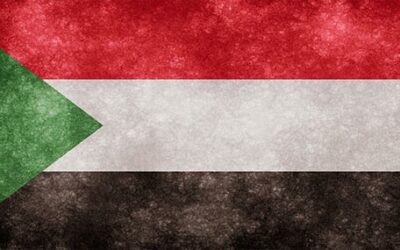Shahzoda Nazarova runs Red Intellect with her husband, Mehdi Jami an Iranian-British media consultant.
Shahzoda was a guest speaker in the Freedom Book Fair, 2019 – held in The Hague, The Netherlands . Red Intellect, is a private publishing company based in the North Holland that promotes Tajik/Persian literature and brings more hope to fellow writers inside the country. Shahzoda and Mehdi hope to give a much need chance in making the voices of other Tajik writers known.
On 29 July 2018 a group of peaceful cyclists were killed by ISIS requited young man in Tajikistan, just to spread fear and block the ways of civilizations to meet, in the less discovered geographical places, like Tajikistan.
Now one year after the horrific incident, Hossain Abdusamadov, the leader of the terrorist group, who delivered the orders from the ISIS, told New York Times journalists, that he does not regret and would kill again the Kafirs, who enter their land.
This is ignorance similar to what humanity witnessed in the middle centuries, why does this still exists in our times? The isolation, the lack of information, the lost grounds of a happier life at home is making millions of Tajik young man and woman leave their children and family to go and work illegally and in a hard conditions in Russia. At the hardest of the moments of their laboured migration hours they get requited by ISIS in the Russian soils and get delivered to the Middle east to serve the extremists.
There are many narratives on this tragic issue that post-Soviet countries are facing, but I am going to focus only on stories. The stories that gives individual a face and faith in itself. My generation is a lost one. As we used to be the citizens of the most biggest continent that covered half of the World map in red stain, now left with a ‘small’, ‘who cares’ – countries, that we have to call a homeland and be obedient to small dictators. There are millions of people, who still mourn Stalins death and that is ignorance that makes them look for the next lot of almighty dictators which is in their religious understanding ISIS.
I see it in the cut string of dialogue between governments and ordinary people. The dialogue which must hold on individual stories, like human to human talk, to wipe the suppression and brainwashing that was planted in people’s minds during the Soviet Union. Soviets have trained millions of solders, that are now in denser hands of getting involved with ISIS.
These small ‘Stans’ – the post-Soviet countries are not ‘who cares lands’, but the lands can bring the region out of stability if not wisely managed. Ignorance and illiteracy is one of the most harmful enemy, that modern and democratic systems must be afraid of. The societies that have stopped telling stories and have stopped listening to the stories of others, are the biggest enemies of humanity. By telling our stories we bring people to justice, we make them to care, to love, to solve our issue. Imagine if no one cares about your story. You are lost. I am talking about the lost generation, that I myself belong to it. We need to be heard and cared.
As a journalist and fiction writer, how one can say that her work and passion is a lost culture in her country?
In my opinion stories have been disappearing underground during that huge red stain of the World map, called USSR, but it has never lost its value. In fact dictators have discovered the true power of the story-telling and stories that unveil the truth about people true feelings and state of mind, so they have gone all the ways to block that sphere in people’s lives, by keeping stories oral and closely monitoring the book markets.
During the process of the collectivization, which lasted decades, but it never fully was realized. Individuals still were the influencers between the ordinary people and the natural selections of their own leaders was the fact Soviet Union had always denied ethnic groups within the Soviet Union had never truly become ‘The new Soviet Man’. They have never were a programmed human being that had no religion of their own, no preference of their own, but only the party’s demands, have no individual state of mind of their own. These were an impossible mission that Soviets had in mind. An ordinary person naturally demands that their needs were based on their human instincts were telling them otherwise. They have kept telling the religious stories to their children, telling historical national and ethnic stories that glorified their nation and mother tongue and so by forcing these important emotional needs of the ordinary people, who cared not about politics went underground and on the contrary of the governments expectations, these aspects become more attractive and privileged to all the generations.
In that huge stain of the Soviet Union, there were countries that Russian was not their mother tongue. There were dozens of nations, that their mother tongue was not even close to the Slavonic group of languages. Countries like Tajikistan, Uzbekistan, Kazakhstan, Kyrgyzstan, Turkmenistan, Georgia, Armenia and so on. Now newly have found their independence these new local smaller dictators, might have not such a power that they had during the Soviet Union, but they still have learned and practiced ways of suppression and by learning from the mistakes of the communists, these dictators are acting one step ahead of the problems, that might undermine their politics. They are suffocating the truth in the thoughts of the oppositions. They are not killing the opponents as much as the ‘father Communists did’, but they are killing words before they get written down or be told to others.
I cannot speak for all non-Russians of the Soviet Union, but I can offer an insight on what is happening with story-tellers in Tajikistan now. These days, story-telling in our modern societies are being guided and processed to move forward, stories get undermined and banned in developing countries. There have been huge wave of banning specific words, that updates citizens minds on understanding their human and social rights in Tajikistan, with the argument of the words being not familiar and foreign to Tajik readers. There have been even a fine announcement for using specific words in print media; and outspoken journalists, who are the only active elite in the country, have received massive warnings to cleanse their writings from non-Tajik words. The fine however was not practiced, or at least there were no records of any journalist getting fined, but the massage was sent. Guided or suggested self censorship is the other tactic of the local governments to prevent an uneasy situations for themselves in the future. By banning the words that represent specific meanings that forces readers to ask questions, or simply makes them understand what is happening in their society, they are knowingly banning the information flow in reaching the audience. I have experienced many times during my interviews, that Tajiks cannot give a clear interview on the current situation of their country just because they don’t know the words for the meanings they want to bring in. By hiding the words, governments are hiding the meaning that the words bring with themselves and question the whole system. So it is clear that without a practical and powerful language, there is no power to people. People feel there are things being missed, but they cannot name them. Afghan citizens have better ability to re-tell the story they have witnessed, than a Tajik in peaceful Dushanbe.
How come the Tajiks, the Persian speaking nation in Central Asia, the nation that gave to the World the first Persian poet, Rudaki Samarkandi and Shehrzadeh, the princes of the 1001 nights, is now struggling even failing to tell their stories to the world?
As a poet, I used to have repetitive and ongoing poetry reading nights in Samarkand, Uzbekistan and read out my poems aloud and have an audience of my own. That was and is a usual custom in the region. Since I started writing novels, I have started to rediscover my own inner world and my own society the way I was never able to see before.
I have discovered the ugly truth of us Tajiks not being able to have a book launch for novels, as it was not customary to read stories in public. I cannot think of any article or any discussions that brings up this issue. We simply do not have a book launch for prose.
Novels have been discredited and never have been fully introduced to Tajiks. Novels are considered to be the less serious work of art and have been undermined and suppressed by all means by the Soviets and that system is still going on in the post-Soviet period.
There is no nationwide book market or book distributing system within the country and beyond, so publishers limit their publications under 1000 copies to make sure they do not get bankrupted. First of all, if writers do not contribute to the publishing, the book does not get published in the first place. The contribution of the author is meant to be for the strengthening of the mother tongue and a charitable work, just like the writing itself.
There is one ‘union of writers’ in Tajikistan, which is ran by the government and inherited from the Soviet Union without a single change or development functions to suppress ‘freedom of writing’ and ‘freedom of thinking’ for all writers in their hundreds, who are member of it.
All the writers get their books published for free, if it best suites the rules of the government. Failure to meet the criteria, the writer gets dispelled from the Union.
In 2017 by the end of 2018 around 400 writers, the members of the Union have been fired, due to incompetence, proving that the Union was marketing its membership, as it was the only Union to recognizing writers of their achievements.
In short, stories are being suppressed and suffocated before they even get written down on paper. By discouraging the system of current affairs inside the country due to which the younger generation, is showing less interested in Tajik books and in any kind of books for that matter.
Stories that hold our world together and connect it with the past and future have no room and space in the society that Imamali Rahman, the lifelong president of Tajikistan, had created in the last two decades.
Depression and isolation that Tajik writers are dealing in separate and in their own solitude is an epidemic modus that is misbalancing society by deciding those who have something to tell from those who want something new to hear and learn.
Soviets made stories less important by which they made individual be less important and get dissolved by the mass. Current dictatorship is suffocating stories and blocking its natural way of development by forbidding publishing companies to own their own printing machines and forcing them to print their books in the government-owned publishing presses, to keep doors under tight control and expensive for private endeavour, until the stories have no value and are yet too expensive to obtain, the dialogue within the society is locked and the key is thrown down the ocean.
The only reason I can think of why after all Tajik writers still stay late at night awake to finish the sentence and complete the story they have chosen to tell, is the fact that Tajiks care about words and respect the writers.
This is the only prestige that was left for the Tajik writers and poets was taken away last year. That was the feeling of the thousands of Tajik artists, when they witnessed two gigantic national poets of the Tajiks buried, after a very short snappy funeral service, without literary recognition speeches -something that was a custom during the Soviet Union.
The streets of the Dushnabe was full with mourning people, reciting their poems and slogans, when Sadreddin Ayni (1878- 1954) and Mirza Tursunzadeh (1911-1977) were buried. Only twelve men gathered to take the coffins of Mūʺmin Qanoat (1939-2018) and Bazar Sabir (1938-2018), two national poets of Tajiks, who died last year in the month of May, to the cemetery without announcing the dates way in advance by local media as it is a custom for funerals. Tajik government is obviously manipulating the ways of paying respect and highlighting the authority of the public figures to those, who saw them as a soldier of truth and the opposite to the government. By comically organizing that shows to the younger generations, that there is no spiritual or financial value in being a story-teller, a soldier of the truth and justice.
I feel, being a writer in Tajikistan is like being a mother, who gives birth and does not know where her children go and whom they serve and who loves or hates them. The mother of many children that will have none of them by her bedside and forget them whilst they all hold her coffin.
The question then begs, why a president, who had managed to change the constitution and have himself a lifelong King by occupying high posts together with his family members, is so scared of stories?
Looking around, developing countries we notice a trend that their stories are not being told as they should be told. Stories teach people, widen their world, awaken their wildest and biggest dreams, remind them their human dignity and value, the beauty around them that they cannot reach, the social gaps that lay still never just. Stories relate to people, and they can have patterns, the ability to compare and finally say “I can do it too!” which scares all dictators.
In a country where people are provided with stories dictators do not flourish and do not last. Any dictator will lose his night’s sleep, if he knows that a story is being told and there is always a noble and evil, light and dark, prisons and freedom of expression and freedom of choice will be discussed in them. What Tajiks love since the enchant times is a story with a happy ending, where an evil ones die and good prevails.
There is no happy place for a dictator in a country where story telling culture is restored and a story-teller is respected and valued. There would be no dictators left if story-tellers were as free as wind and stories were at people’s reach as drinking water. Helass, dictators know it and they have been keeping stories and story-tellers in a tight leash and for a long time. That does not mean Tajiks have no story-tellers. Hell we do! But western countries still prefer to listen to Shehersadeh, the daughter of the Shah, who lived a thousand years ago in Samarkand, in the city where I was born, the city that Tajiks live and still tell stories. The stories that get blocked within the tight borders and corrupt systems that dictators have built to kill the story before they kill them.
However, I am glad, that Tajiks have dozens of Sheherezedas, who keep telling stories, no matter if it is not reaching the ears of the Shah, but they are being told and retold to the inner collective unconscious mind of the coming generations.
At the beginning we can’t be sure that it was a word, which started the creation of our world, but I am sure a wrong word will defiantly destroy it. So let’s all together work to spread the right words to reach all human kinds, especially those who needs them the most.
Get in Touch!
Shahzoda Nazarova Samarkandi
July, 2019
North Holland, The Netherlands
—-
“The literary sphere in Tajikistan is a dramatically shrinking and having it’s darkest times in the last three decades after the collapse of the Soviet Union. Writers are falling deeper in isolation, detachment, and depression. Writer’s block is getting widespread between the Tajik writers and it is a common experience for both writers inside and out of the country. ” – Shahzoda Nazarova Samarkandi
Picture Courtesy | Oziel Gomez






